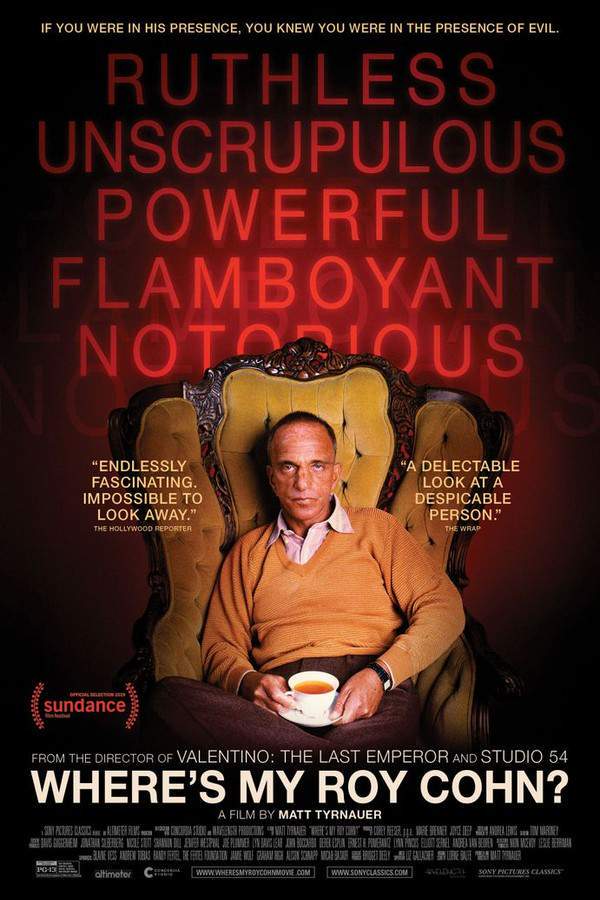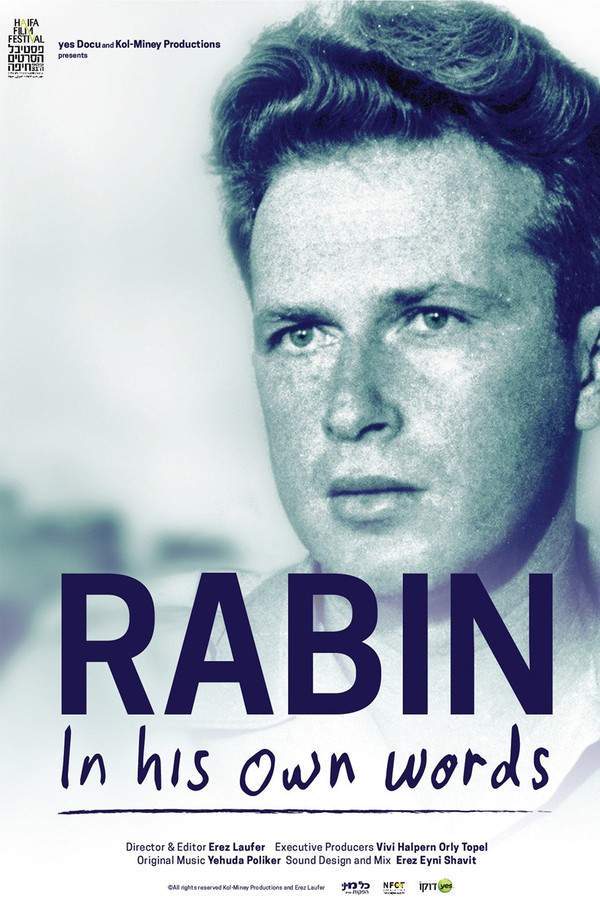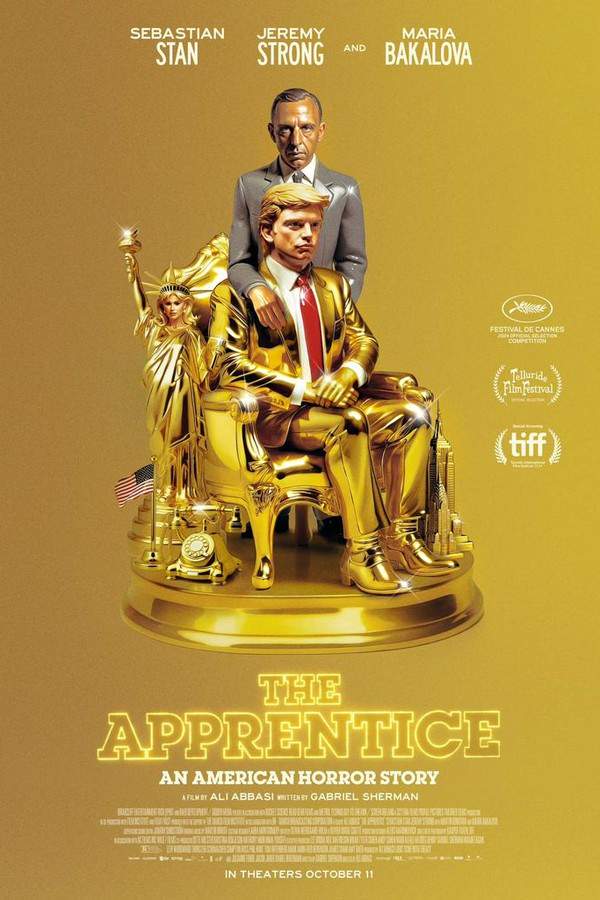
Where's My Roy Cohn? 2019
Directed by

Matt Tyrnauer
Made by

Sony Pictures Classics
Test your knowledge of Where's My Roy Cohn? with our quiz!
Where's My Roy Cohn? Plot Summary
Read the complete plot summary and ending explained for Where's My Roy Cohn? (2019). From turning points to emotional moments, uncover what really happened and why it matters.
The film delves into the complex life of Roy Cohn, a formidable New York lawyer whose influence spanned from being the chief counsel to Senator Joseph McCarthy during the Second Red Scare to serving as the personal attorney for real estate mogul Donald Trump.
In 1951, Cohn emerges as a mere 24-year-old legal assistant at the office of United States Attorney General J. Howard McGrath, contributing to a prosecution team involved in the controversial trial of Julius and Ethel Rosenberg. This period, a time marked by intense fear of the “Communist menace,” brings forth critical commentary on the judicial system, particularly targeting judge Irving Kaufman for alleged misconduct.
Displaying exceptional intellect, Cohn graduates from Columbia Law School at just 20, securing his position in the New York State Bar Association by the age of 21. However, during the 1940s and 1950s, societal norms painted homosexuality as a taboo, especially for those in powerful government positions. Cohn plays a key role during the Lavender Scare, a time when many were persecuted for their sexual orientation. Reportedly, there was a “romantic crush” between Cohn and David Schine, complicating his public and private persona. This is further exacerbated during the infamous Army–McCarthy hearings, where opposing counsel Joseph N. Welch publicly chastises Cohn, hurling homophobic jabs that reflect the harsh stance society took against individuals like Cohn, caught between ambition and their true selves.
The film offers a fascinating insight into the life of a man shaped by the tumultuous politics of his era, revealing how deeply personal struggles intertwined with his legal battles.
Where's My Roy Cohn? Timeline
Follow the complete movie timeline of Where's My Roy Cohn? (2019) with every major event in chronological order. Great for understanding complex plots and story progression.
Roy Cohn's Early Career
In 1951, Roy Cohn begins his legal career as a 24-year-old legal assistant in the office of United States Attorney General J. Howard McGrath. He joins a prosecution team involved in the controversial trial of Julius and Ethel Rosenberg, reflecting the intense political climate of the time.
Judicial System Criticism
During the Rosenberg trial, Cohn and his team face scrutiny over the actions of judge Irving Kaufman. This period serves as a critical commentary on the judicial system and the measures taken against alleged communists.
Academic Achievements
Displaying remarkable intellect, Roy Cohn graduates from Columbia Law School at just 20 years old. His academic success enables him to join the New York State Bar Association by the age of 21, marking the beginning of his prominent legal career.
The Lavender Scare
Throughout the 1940s and 1950s, societal norms severely stigmatize homosexuality, especially for those in positions of power. During the Lavender Scare, Cohn plays a pivotal role in the persecution of individuals based on their sexual orientation, navigating a dangerous political landscape.
Cohn's Romantic Encounters
Cohn reportedly develops a 'romantic crush' on David Schine, adding a layer of complexity to his public persona. This relationship raises questions about Cohn's own identity in a time when homosexuality was heavily repressed.
Army-McCarthy Hearings
The infamous Army-McCarthy hearings become a pivotal moment in Cohn's career. During these hearings, opposing counsel Joseph N. Welch confronts Cohn with public and homophobic criticisms, revealing the broader societal challenges faced by Cohn.
Cohn's Rise in New York
As a formidable lawyer, Cohn establishes a powerful presence in New York's legal community. His influential connections lead him to become the personal attorney for notable figures, including real estate mogul Donald Trump.
Influence on McCarthyism
Cohn serves as chief counsel to Senator Joseph McCarthy during the Second Red Scare, reinforcing his role in the anti-communist movement of the time. This period solidifies his reputation as a fearsome litigator willing to use aggressive tactics.
Public Persona vs. Private Struggles
The tensions between Cohn's ambition and his true self create an ongoing internal conflict. His struggles with identity and societal norms provide a deeper understanding of his motivations and actions throughout his career.
Legacy of Roy Cohn
Cohn's complex legacy is shaped by his contributions to significant legal battles and his controversial political maneuvers. His life serves as a lens through which the struggles of personal identity and ambition within a tumultuous political landscape can be viewed.
Where's My Roy Cohn? Characters
Explore all characters from Where's My Roy Cohn? (2019). Get detailed profiles with their roles, arcs, and key relationships explained.
Roy Cohn
Roy Cohn is a controversial and ambitious lawyer known for his ruthless legal tactics and connections to powerful political figures. He navigates a complex personal and professional life, grappling with societal norms regarding sexuality while fiercely seeking influence and control in the political arena.
Joseph McCarthy
Senator Joseph McCarthy is renowned for his aggressive investigations during the Red Scare, advocating for the accusation of communists in government positions. His partnership with Cohn exemplified extreme political maneuvering, while his own questionable methods fostered widespread fear and paranoia across the nation.
Donald Trump
Donald Trump, a real estate mogul, enlists Cohn as his personal attorney, showcasing Cohn's ongoing influence in high-profile circles. Trump's relationship with Cohn reflects the interplay of power and ambition in the realm of politics and business, illustrating how legal advice can shape public and private fortunes.
Where's My Roy Cohn? Settings
Learn where and when Where's My Roy Cohn? (2019) takes place. Explore the film’s settings, era, and how they shape the narrative.
Time period
1950s
The 1950s was a decade marked by the Cold War and widespread paranoia about communism in the United States. The fear of the 'Communist menace' led to significant political events, including the Red Scare and the Lavender Scare, which forced many individuals into hiding, impacting their careers and personal lives profoundly.
Location
New York
New York is a vibrant and influential city known for its significant role in politics, law, and culture. During the 1950s, it served as a battleground for critical legal and political controversies, reflecting the intense climate of fear and suspicion fueled by the Cold War.
Where's My Roy Cohn? Themes
Discover the main themes in Where's My Roy Cohn? (2019). Analyze the deeper meanings, emotional layers, and social commentary behind the film.
⚖️
Justice
The theme of justice permeates the movie as it explores the complexities of legal proceedings during a time of political turmoil. The film raises questions about the fairness of the judicial system and the moral implications of power wielded by individuals like Roy Cohn, who used law as a weapon in their pursuits.
🌈
Identity
Identity is a central theme as the film delves into Cohn's struggle with his sexual orientation and the societal pressures that dictated the norms of the time. It illustrates the conflict between public persona and private self, showcasing how identity can be a battleground within the constraints of societal expectations.
🛡️
Power
The theme of power is explored through Cohn's relationships with influential figures and his rise through the legal ranks. The film highlights how Cohn's ambition drove him to manipulate the political landscape, reflecting how personal vendettas and ambitions can collide with larger societal issues.

Coming soon on iOS and Android
The Plot Explained Mobile App
From blockbusters to hidden gems — dive into movie stories anytime, anywhere. Save your favorites, discover plots faster, and never miss a twist again.
Sign up to be the first to know when we launch. Your email stays private — always.
Where's My Roy Cohn? Spoiler-Free Summary
Discover the spoiler-free summary of Where's My Roy Cohn? (2019). Get a concise overview without any spoilers.
In a stark, meticulously edited tapestry of archival footage and contemporary interviews, Roy Cohn stands at the center of a sweeping portrait of American power and ambition. The documentary opens on a nation gripped by fear and ideology, where the corridors of law and politics blur into a high‑stakes arena of influence. From the smoky rooms of mid‑century Washington to the glittering facades of modern real‑estate empires, the film paints a world where loyalty, reputation, and ruthless strategy dictate the pace of history.
The tone balances the cold precision of legal maneuvering with an unsettling undercurrent of personal secrecy. As the narrative unfolds, viewers sense the relentless drive of a man who mastered the art of persuasion, wielding it to shape public perception and political outcomes. The mood is both investigative and reflective, using a muted color palette and a rhythm of lingering shots that invite contemplation about the cost of unchecked authority.
Senator Joseph McCarthy appears as a pivotal figure whose anti‑communist crusade provides the backdrop against which Cohn first sharpens his tactics. The film hints at the ways this early environment forged a method of attack that would echo through later decades, suggesting a lineage of influence that reaches into the contemporary political sphere. Meanwhile, a glimpse of Donald Trump hints at the continuity of a particular brand of power—one that thrives on media manipulation and unapologetic self‑promotion.
Through interviews with historians, journalists, and those who once navigated the same streets, the documentary invites the audience to consider how a single, fiercely determined individual can leave an indelible mark on the nation’s fabric. It leaves us pondering the intersection of ambition, identity, and the relentless pursuit of control—all without revealing the specific turns that the story will ultimately take.
Can’t find your movie? Request a summary here.
Movies with Similar Twists and Themes
Uncover films that echo the narrative beats, emotional arcs, or dramatic twists of the one you're exploring. These recommendations are handpicked based on story depth, thematic resonance, and spoiler-worthy moments — perfect for fans who crave more of the same intrigue.
Featured on this page

What's After the Movie?
Not sure whether to stay after the credits? Find out!
Explore Our Movie Platform
New Movie Releases (2026)
Famous Movie Actors
Top Film Production Studios
Movie Plot Summaries & Endings
Major Movie Awards & Winners
Best Concert Films & Music Documentaries
Movie Collections and Curated Lists
© 2026 What's After the Movie. All rights reserved.







